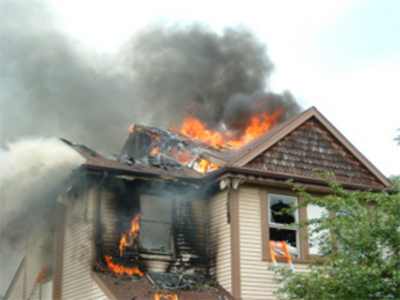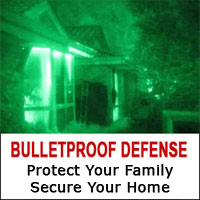 How can you protect yourself and your family from fire?
How can you protect yourself and your family from fire?
Recovering from a fire can be a physically and mentally draining process.
When fire strikes, lives are suddenly turned upside down. Often, the hardest part is knowing where to begin and who to contact.
The Federal Emergency Management Agency’s (FEMA) United States Fire Administration (USFA) has gathered the following information to assist you in this time of need.
WHAT TO DO BEFORE A FIRE
The following are things you can do to protect yourself, your family, and your property in the event of a fire:
Smoke Alarms
Install smoke alarms. Properly working smoke alarms decrease your chances of dying in a fire by half.
Place smoke alarms on every level of your residence. Place them outside bedrooms on the ceiling or high on the wall (4 to 12 inches from ceiling), at the top of open stairways, or at the bottom of enclosed stairs and near (but not in) the kitchen.
Test and clean smoke alarms once a month and replace batteries at least once a year. Replace smoke alarms once every 10 years.
Escaping the Fire
Review escape routes with your family. Practice escaping from each room.
Make sure windows are not nailed or painted shut. Make sure security gratings on windows have a fire safety opening feature so they can be easily opened from the inside.
Consider escape ladders if your residence has more than one level, and ensure that burglar bars and other anti-theft mechanisms that block outside window entry are easily opened from the inside.
Teach family members to stay low to the floor (where the air is safer in a fire) when escaping from a fire.
Clean out storage areas. Do not let trash, such as old newspapers and magazines, accumulate.
Flammable Items
Never use gasoline, benzine, naptha, or similar flammable liquids indoors.
Store flammable liquids in approved containers in well-ventilated storage areas.
Never smoke near flammable liquids.
Discard all rags or materials that have been soaked in flammable liquids after you have used them. Safely discard them outdoors in a metal container.
Insulate chimneys and place spark arresters on top. The chimney should be at least three feet higher than the roof. Remove branches hanging above and around the chimney.
Be careful when using alternative heating sources.
Check with the Detroit Fire Department on the legality of using kerosene heaters in your community. Be sure to fill kerosene heaters outside, and be sure they have cooled.
Place heaters at least three feet away from flammable materials. Make sure the floor and nearby walls are properly insulated.
Use only the type of fuel designated for your unit and follow manufacturer’s instructions.
Store ashes in a metal container outside and away from your residence.
Keep open flames away from walls, furniture, drapery, and flammable items.
Keep a screen in front of the fireplace.
Have heating units inspected and cleaned annually by a certified specialist.
Matches and Smoking
Keep matches and lighters up high, away from children, and, if possible, in a locked cabinet.
Never smoke in bed or when drowsy or medicated. Provide smokers with deep, sturdy ashtrays. Douse cigarette and cigar butts with water before disposal.
Electrical Wiring
Have the electrical wiring in your residence checked by an electrician.
Inspect extension cords for frayed or exposed wires or loose plugs.
Make sure outlets have cover plates and no exposed wiring.
Make sure wiring does not run under rugs, over nails, or across high-traffic areas.
Do not overload extension cords or outlets. If you need to plug in two or three appliances, get a UL-approved unit with built-in circuit breakers to prevent sparks and short circuits.
Make sure insulation does not touch bare electrical wiring.
Other Safety Tips
Sleep with your door closed.
Install A-B-C-type fire extinguishers in your residence and teach family members how to use them.
Consider installing an automatic fire sprinkler system in your residence.
WHAT TO DO DURING A FIRE
If your clothes catch on fire, you should:
Stop, drop, and roll – until the fire is extinguished. Running only makes the fire burn faster.
To escape a fire, you should:
Check closed doors for heat before you open them. If you are escaping through a closed door, use the back of your hand to feel the top of the door, the doorknob, and the crack between the door and door frame before you open it. Never use the palm of your hand or fingers to test for heat – burning those areas could impair your ability to escape a fire (i.e., ladders and crawling).
Hot Door Cool Door
Do not open. Escape through a window. If you cannot escape, hang a white or light-colored sheet outside the window, alerting fire fighters to your presence. Open slowly and ensure fire and/or smoke is not blocking your escape route. If your escape route is blocked, shut the door immediately and use an alternate escape route, such as a window. If clear, leave immediately through the door and close it behind you. Be prepared to crawl. Smoke and heat rise. The air is clearer and cooler near the floor.
Crawl low under any smoke to your exit – heavy smoke and poisonous gases collect first along the ceiling.
Close doors behind you as you escape to delay the spread of the fire.
WHAT TO DO AFTER A FIRE
The following are guidelines for different circumstances in the period following a fire:
If you are with burn victims, or are a burn victim yourself, call 9-1-1; cool and cover burns to reduce chance of further injury or infection.
If you detect heat or smoke when entering a damaged building, evacuate immediately.
If you are a tenant, contact the landlord.
If you have a safe or strong box, do not try to open it. It can hold intense heat for several hours. If the door is opened before the box has cooled, the contents could burst into flames.
If you must leave your home because a building inspector says the building is unsafe, ask someone you trust to watch the property during your absence.
Stay out once you are safely out. Do not re-enter. Call 9-1-1.



